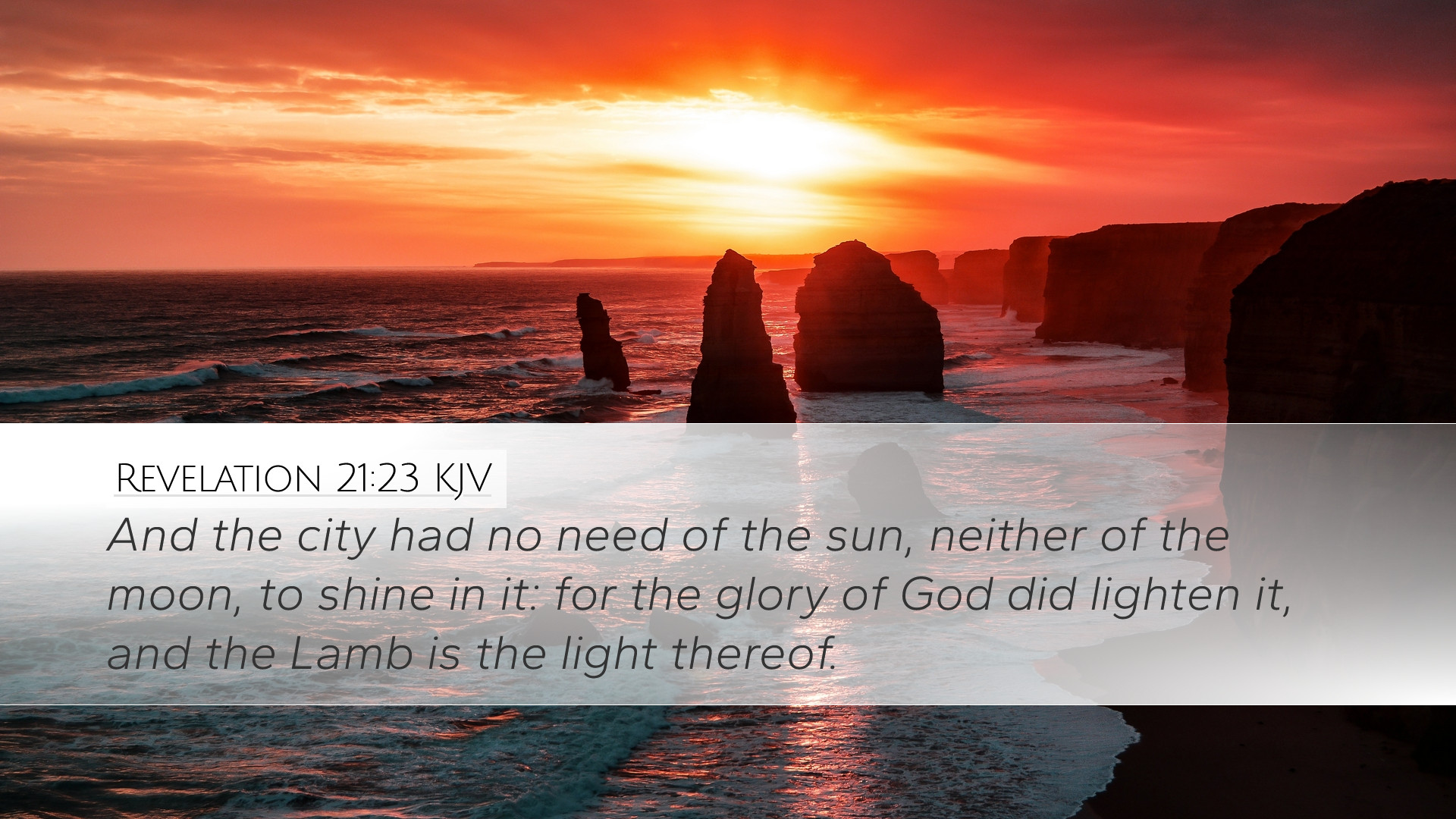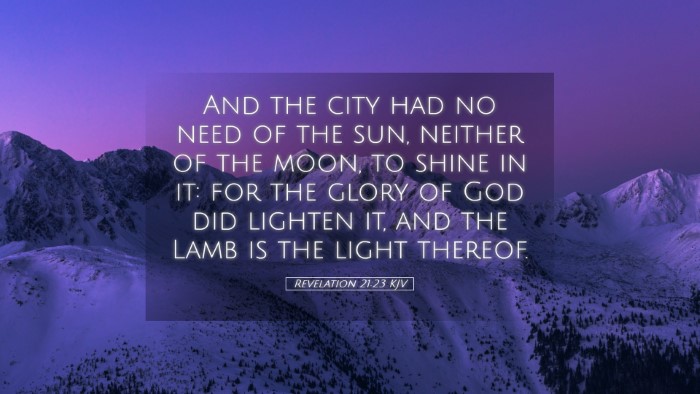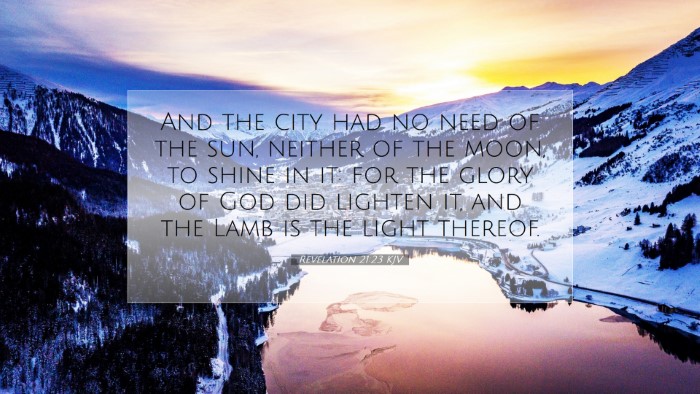Commentary on Revelation 21:23
Verse Translation: "And the city had no need of the sun, neither of the moon, to shine in it: for the glory of God did lighten it, and the Lamb is the light thereof." (Revelation 21:23 KJV)
Introduction
The book of Revelation, penned by John, presents a vivid portrayal of the end times and the eternal state of believers. In chapter 21, the focus shifts to the New Jerusalem, a place where God's presence and glory are paramount. This verse encapsulates the profound transformation of reality in God's ultimate kingdom, emphasizing that the celestial bodies, which play a crucial role in our current existence, become superfluous in the presence of divine light.
Theological Significance
This verse strikes at the heart of Christian eschatology and soteriology, where the culmination of God’s redemptive plan reveals a future where divine presence supersedes physical creation. The absence of the sun and moon signifies not an annihilation of creation, but a transfiguration where God's glory fulfills the need for light.
Matthew Henry's Insights
Henry emphasizes that the New Jerusalem represents a state of perfection – where divine radiance replaces the natural light of the sun and moon. He notes that the mere presence of the Lamb provides illumination that surpasses all earthly brightness. This conveys a theological truth: in the eternal state, God's glory is the ultimate source of life and knowledge, illuminating the hearts and minds of the redeemed.
Adam Clarke's Contributions
Clarke expands on the idea of the Lamb as the source of light, suggesting that this symbolizes the direct knowledge and understanding believers will have of God in eternity. He interprets the rejection of the sun and moon as a declaration that God’s eternal truth will be fully unveiled, eliminating the need for lesser sources of enlightenment. In this future reality, believers shall dwell in never-ending fellowship with God.
Albert Barnes' Perspective
Barnes highlights the contrast between the present world and the new creation. He comments on the role of celestial bodies and how their functions are rendered obsolete in the presence of divine glory. Barnes asserts that this assures believers of a future where they will no longer rely on earthly means for light and guidance; instead, they will bask in the full revelation of God's presence.
Implications for Believers
The reality of Revelation 21:23 encourages believers in several key areas:
- Hope: The verse reinforces the hope of eternal life where darkness and ignorance are eradicated.
- Intimacy with God: It emphasizes a deeply personal relationship with God, where His light directly nourishes the soul.
- Transformation: The passage indicates a future transformation that transcends earthly limitations, calling believers to aspire towards that divine nature.
Literary Context
Within its literary context, Revelation 21:23 serves as a climactic declaration of the new order of creation. Preceding verses detail the new heaven and earth established after judgment, culminating in the description of the New Jerusalem as the Bride of Christ. The city, adorned and radiant, stands as a testament to God’s faithfulness and the fulfillment of His promises to His people.
Intertextual Connections
John's imagery here can be linked to prophetic literature, particularly Isaiah 60:19-20, which speaks of the Lord as an everlasting light to His people. This connection reinforces the prophetic promise of a restored relationship between God and humanity, fulfilled in the eschatological kingdom.
Conclusion
Revelation 21:23 serves as a profound declaration of hope and divine promise for believers. The absence of the sun and moon and the presence of God's glory challenge us to re-examine our understanding of light and enlightenment in our spiritual journey. As we reflect on this verse, we are reminded of the ultimate purpose of creation: to glorify God and to participate in the light of His presence forever.
Reflection Questions
- How does understanding God as our ultimate light change the way we live out our faith today?
- In what ways can we reflect the light of Christ to others in our current world?
- What steps can we take to prepare ourselves for eternal life in God’s presence?


